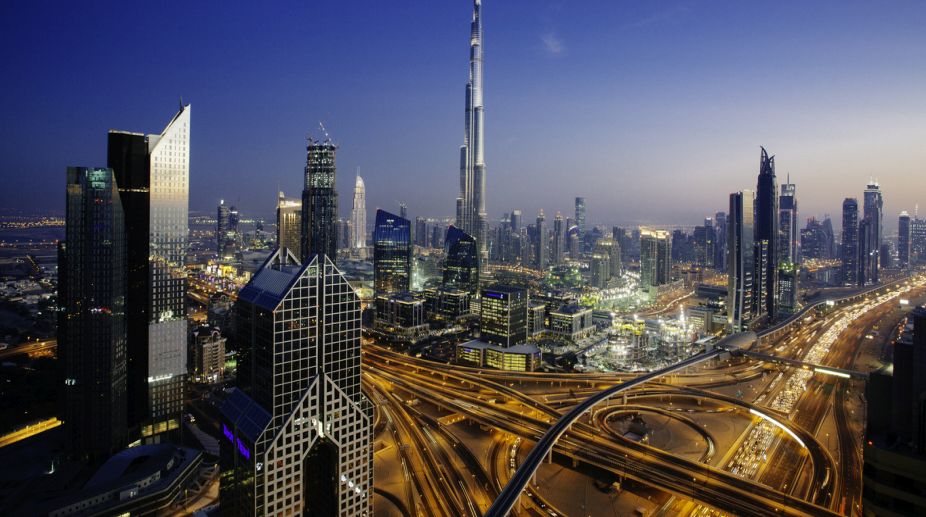Gaza peace talks yet to make headway as Israel stick to its conditions
Sources in the Israeli Defense Ministry told IANS that Israel would stick to its terms, which the war cabinet had agreed upon.

(Getty Images)
The stand-off between Qatar and other Arab states has put a question mark on the future of lakhs of Indians working there, says correspondent, M D Agarwal. He reminisces that people from Thatta, Gujarat, and Bombay came to Dubai by ship, in large numbers. Before 1947, Gujaratis were mostly jewellers, while Sindhis and Bhatias were traders: importers of various commodities, from salt to cameras to cars. Indian red currency was in circulation. The ruler Sheikh Rashid declared Dubai a free port. Oil was struck at Abu Dhabi, then at Dubai, Sharjah and other states. Then it was one of the seven Trucial states under the British Protectorate, not UAE. Oil metamorphosed it into an oasis from a desert!
With the passage of time, business boomed. Indians played a vital role in its development. All the seven states welcomed Indian doctors, engineers, architects, technicians, builders and consultants at Dubai, in January 1966. Local Arabs loved India and loved to speak Hindi (tooti-phooti). Indian cinema was a popular mode of entertainment; I remember after a late night show, a cop stopped stragglers and asked “Who are you?” She replied, “I came from India”. “You may go,” the cop said. Such was the goodwill for Indians. Indians had a liquor permit according to their salary, of course, with the condition that it would not be served to any Muslim. Gujarati/vegetarian restaurants were free to serve even during the fasting (Roza) month of Ramzan. Indian technicians were preferred in high skill jobs. “In this El-Dorado I lived for 13 long years, without any discrimination, distraction or disturbance, more decently and comfortably than I could have lived in my own country: how lucky was I to set my foot on the UAE state rather any western country!” But he seems to have got out of the trouble-spot in the nick of time.
Ode to a supercop
Advertisement
From distant Wales has come an insightful, though belated obituary on K P S Gill who died aged 82 last month. He was born in Ludhiana, but after Independence was brought up in Simla (now Shimla) in the Himalayan foothills. His father, Rachpal Singh Gill, was a high ranking government engineer. His mother, Amrit Kaur, a homemaker, died when he was a schoolboy. His father then married a young doctor, Satwant Kaur. I was at school with Gill at St Edward’s in Simla, a strict Catholic establishment, says R Hassay. He was an above average scholar but was a withdrawn boy, possibly because of the grief of losing his mother. After a degree in English from Panjab University, he qualified for the Indian Police Service and was posted in Assam. This was at a volatile time of nationalism in Assam. Gill carried out his policing with a no-nonsense approach. He was once accused of kicking a lawbreaker to death. Meanwhile, the situation in Punjab, had become explosive, when Bhindranwale and his followers took over the Golden Temple in Amritsar in 1984. Indira Gandhi ordered the army to storm the temple.
The government transferred Gill to Punjab. Hundreds were killed by his police force, leading many like the writer Khushwant Singh to question Gill’s methods. "I, in distant London, could hardly believe what I was reading about my old school friend. He is survived by his nonagenarian step-mother after succumbing to diabetes," adds Hassey, who was specially asked by the Manchester Guardian to write the obituary of his classmate.
Going live
Who doesn't want to appear on screen? There certainly are many who get so obsessed with the camera that they never miss a chance to go live. On a recent trip to Odisha, a colleague came across one such travel guide, who just wanted to come on screen every time without fail. Since it was a media trip, the group had a few video journalists who were filming the several tourists destinations being shown to them and some were going live too. While shooting a site, the video journalists would seek a comment from the guide to figure in their videos. Needless to say, this live activity was liked by the guide very much. Then onwards, at every destination, the guide started to elaborate in more detail and try every trick to beseech the electronic journalists to go live.When nothing moved them, he ended up asking them to at least record him.
Tailpiece
Commenting on the obsession for “selfie” Prime Minister Narendra Modi quipped at a Statesman book launch ceremony in Rashtrapati Bhavan, “Autograph + Photograph = Selfie.”
Contributed by: Rakesh Kumar, Kunal Roy, R V Smith and Asha Ramachandran
Advertisement